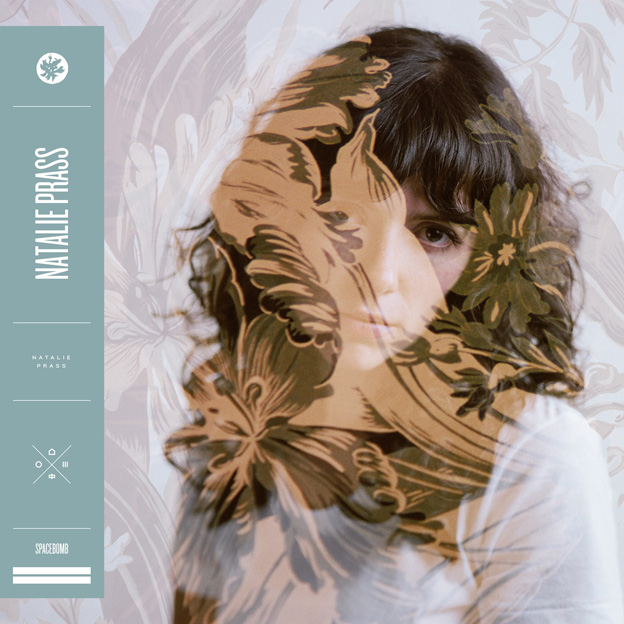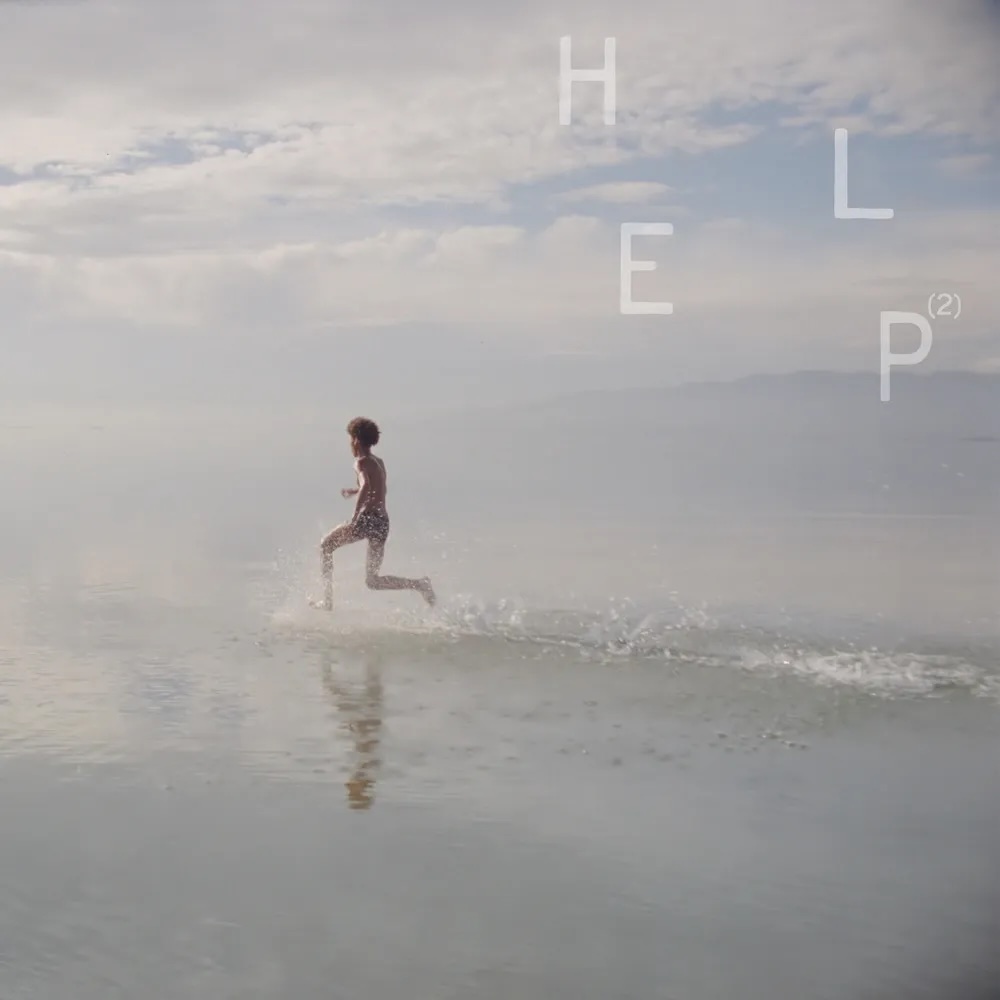First things first: All hail Björk's Vulnicura. It's the best album that's come out in the past week, but you already knew that, and we already wrote about it. So, as usual, let's use this space to dig a little deeper.
This week was a two-horse race, and it was close. There were more than two albums' worth of good music, of course, and if you're sleeping on Menace Beach's '90s alt-pop fuzz-blast Ratworld or Aphex Twin's trickier-than-it-needs-to-be Computer Controlled Acoustic Instruments pt2 EP, you should stop. But the thing that decided this week was a knock-down drag-out between two young singer-songwriter ladies from opposite coasts who draw on your parents' record collections and make hushed, intimate, ridiculously pleasant music. This week was the war between Prass and Pratt. Jessica Pratt, the California folk singer who records solo and lo-fi enough that you can hear her fingers squeaking on strings, made On Your Own Love Again, a record that drifts past you like summer breeze. Other than one moment where Pratt's guitar intentionally lurches out of tune for a bar or two, On Your Own Love Again asks nothing of you. It flutters and whispers and throws scented-candle calm vibes all over your living room. It's great at what it does, and I changed my mind about 15 times before I finally sat down to write this thing. But I ultimately went with an album that refuses to settle even as it creates its own atmosphere. The self-titled debut album from the Virginia-reared and Nashville-based Natalie Prass is dense and rich and complex, so overstuffed with instrumentation that your ear doesn't quite know where to settle. It has a lot going on. And even though its music isn't confrontational in any conventional sort of way, it asks things of you just because you have to train your ear to hear that many fucking flugelhorns at once. Natalie Prass makes you put in ear-work, and it rewards that work.
Prass is a music-school type; she did a year at Boston's Berklee College of Music before she came to the entirely reasonable decision that Boston is a terrifying place to live. And even if she didn't spend long there, you can hear music-school tendencies in the way she writes her songs and uses her voice. Prass' voice isn't some huge belt-it-out thing. It's small and reserved and conversational. When she needs it to, it can float. It flits in and out of rhythms without ever letting those rhythms dominate it. When she stops singing and just talks, it makes dramatic sense. It also makes dramatic sense when that voice flies into these precise, jazzy phrasings. "Sophistication" is a fucking horrendous word in music criticism, since it usually means "white" and "not country." But with Prass, you get the sense that she's put in serious work and technique into figuring out where to let that voice rise and fall. And just as important, her two collaborators are music-school types. Matthew E. White and Trey Pollard both went through the VCU jazz program and built Spacebomb, the Virginia studio and label where violas matter at least as much as guitars. These guys are arrangement beasts, and they throw layer upon layer of strings and horns and woodwinds and harps at everything they make. On White's own album Big Inner, that phalanx of studio musicians brought this goofy-looking white hippy dangerously close to Curtis Mayfield territory. And on Natalie Prass, that orchestra of collaborators makes everything sound even bigger and richer than before.
Natalie Prass draws on the soul and country music of the mid-'70s, the era when both genres had auteur producers who wanted to cram as many instruments as possible onto every mix. (Soul and country were practically the same thing for a few years, something we're never going to see again.) There's also a bit of Tin Pan Alley in there, especially in the clipped and precise way Prass delivers her lyrics. And there's a film-score sweep to the sound, too. One of these days, someone is going to get White and Pollard to soundtrack a movie, and it's going to be fucking awesome, the same way it was fucking awesome when Paul Thomas Anderson got Jon Brion to score his movies for a few glorious years there. (A Wes Anderson, for example, could get plenty of juice from what those guys can do with a squad of flutists.) For Prass, they're ideal collaborators. She's got these sunny, openhearted, playful melodies, and the Spacebomb guys' vast and lush instrumentation makes a fascinating vehicle for those melodies.
Think of the way Fiona Apple nudged Jon Brion's arrangements in 15 different directions on "Extraordinary Machine": That's what Prass does here. She's not a gut-scraping lyricist like Apple, but she's got that same starry-eyed sensibility that Apple has when she's in whimsical mode. Natalie Prass is, on the face of it, a breakup album. Almost every song is about watching someone drift away ("Christy" is practically a rewrite of Dolly Parton's "Jolene") or pining for that person when that person is gone. But the album isn't raw or difficult. Other than its addiction to strings, it couldn't be any further from Björk's Vulnicura. Her sound is too friendly, and there's too much pleasure in hearing her voice play across this absurdly rich and ornate musical landscape. And there's a happy ending, too: "Is It You," the giddy album-closing love song that, as a few other people have already pointed out, sounds like a Disney-princess singalong. "Is It You" practically drowns you in charm. I'm not sure it's even possible to be sad when the thing is on.
Prass recorded the album a couple of years ago, and she's apparently been waiting around, frustrated and impatient, for it to finally see the light of day. In the meantime, she's written another couple of albums' worth of music and started playing keyboards in Jenny Lewis' touring band. I can understand that frustration, but it feels like a genuine miracle that the album exists at all. We've heard again and again about all the ways that technology has democratized the music universe. Bands don't have to scrape together day-job money for studio time when they can just slap their shit together in ProTools. But if you're going to record a towering orchestral pop album, you really need to get yourself some goddam clarinet players, and that cannot be easy. There are dozens of people listed in the Natalie Prass credits, and it feels like more than that, especially since many of them play more than one instrument. We're just not used to hearing music like this anymore. Jenny Lewis, who is Prass' boss right now, just made a really great major-label singer-songwriter album, but it's not anywhere near this rich. We're just not used to hearing music that sounds like Natalie Prass anymore. It feels like a luxuriant shock to the system, like eating at a restaurant you can't afford or falling asleep on sheets where the thread count is so far beyond what you're used to feeling. Natalie Prass is an album full of really good songs, and it would be worth hearing even if she just recorded them at home on a piano. But it's also a rich, opulent experience. It's fancy. And it's pretty great to be reminded that music can be fancy like that.
Natalie Prass is out now on Spacebomb.
[videoembed size="full_width" alignment="center"][/videoembed]
Other albums of note out this week:
• Björk's volcanic, heart-wrecking Vulnicura.
• Jessica Pratt's dizzyingly pretty folk seance On Your Own Love Again.
• Menace Beach's giddily retro indie-pop pogo-fest Ratworld.
• Twerps' jangled hookfest Range Anxiety.
• Pond's starry-eyed psych-rocker Man It Feels Like Space Again.
• Napalm Death's authoritatively ugly grindcore attack Apex Predator - Easy Meat.
• The Body and Thou's collaborative doom wallow You, Whom I Have Always Hated.
• Swami John Reis & The Blind Shake's instrumental surf-punk collaboration Modern Surf Classics.
• Obnox's scuzzy garage-rock assault Boogalou Reed.
• The Dodos' reliably sunny Individ.
• American Wrestlers' energetic self-titled lo-fi debut.
• Future Islands/Double Dagger side project Peals' instrumental wander Seltzer.
• Howlin Rain's Mansion Song, the first entry in their new folk-rock trilogy.
• Dirty Dishes' dreamy DIY debut Guilty.
• Beat Spacek's futuristic iPhone/iPad album Modern Streets.
• Desperate Journalist's Smithsian self-titled debut.
• BIG MUFF RADIO's slapped-together electronic debut Life Is Easy.
• Doomtree's art-rap group effort All Hands.
• Ty Segall Band's in-concert album Live In San Francisco.
• Young Ejecta's The Planet mini-album.
• Aphex Twin's Computer Controlled Acoustic Instruments pt2 EP.
• You Blew It!'s Pioneer Of Nothing EP.
• Mike G's Award Tour II EP.
• Herbert's Part 8 EP.






